MercoPress. South Atlantic News Agency
Tag: La Niña
-
Thursday, October 2nd 2025 - 09:18 UTC
La Niña forecast to hit Uruguay's agriculture
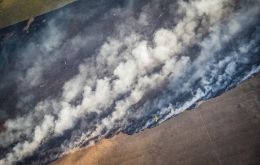
Weather forecasters announced a high probability that the La Niña climate phenomenon will affect Uruguay during the 2025-2026 season, bringing significant challenges to the agricultural sector.
-
Tuesday, December 31st 2024 - 10:55 UTC
La Niña projected to take its toll in the Southern Cone

Meteorologists foresee that the La Niña weather phenomenon will not go unnoticed in the Southern Cone next year after the Brazilian agency Metsul reported signs of unusual activity in the Pacific Ocean. The main impact will be reflected in mercurial temperatures, MetSul's warning noted.
-
Monday, November 18th 2024 - 08:30 UTC
La Niña threatens this year's soybean crop in Paraguay
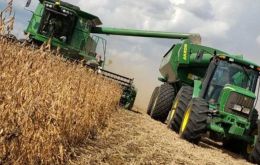
Paraguayan soybean producers warned this weekend that the La Niña weather phenomenon may affect this year's crop while the 2023/24 harvest is expected to reach a record in tons produced and exported, it was reported in Asunción.
-
Tuesday, September 11th 2018 - 09:29 UTC
El Niño 2018/19 could be a repeat of 2015/16, cautions WMO
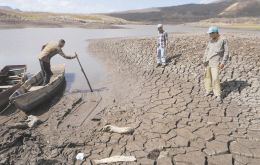
There's a 70% chance of a recurrence of the El Niño weather event before the end of this year, according to the World Meteorological Organization. The last El Niño occurred in 2015-16 and impacted weather patterns around the world, but researchers say they are not expecting this new one to be as intense as 2015-16.
-
Thursday, February 6th 2014 - 04:53 UTC
Last year was among the top ten warmest since modern records started in 1850

The year 2013 was among the top ten warmest years since modern records began in 1850, according to the World Meteorological Organization (WMO). It tied with 2007 as the sixth warmest year, with a global land and ocean surface temperature that was 0.50°C (0.90°F) above the 1961–1990 average and 0.03°C (0.05°F) higher than the most recent 2001–2010 decadal average.
-
Saturday, January 28th 2012 - 07:13 UTC
Drought in Argentina and Brazil cuts significantly corn crops’ volumes
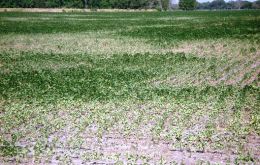
Corn advanced heading for the biggest weekly gain in five as concerns that a renewed heat wave in Argentina and south Brazil may damage crops boosted demand for US grain. Soybeans were little changed.
-
Tuesday, November 29th 2011 - 21:00 UTC
Global temperature in 2011, the tenth highest on record, says WMO

Global temperatures in 2011 are currently the tenth highest on record and are higher than any previous year with a La Niña event, which has a relative cooling influence. The 13 warmest years have all occurred in the 15 years since 1997. The extent of Arctic sea ice in 2011 was the second lowest on record, and its volume was the lowest.
-
Wednesday, August 17th 2011 - 23:42 UTC
La Niña threatens Brazil and Argentina crops says Oil World
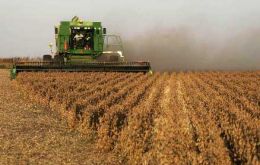
South American grain and oilseed production may be in jeopardy from the formation of a La Niña weather pattern, which might curb rainfall in parts of Brazil and Argentina, Oil World said.
-
Wednesday, June 15th 2011 - 22:02 UTC
End of intense La Niña cycle anticipates return to average rainfall in Chile
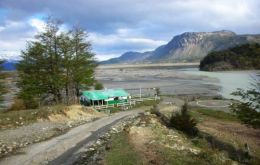
The most intense La Niña climate pattern since 1975 is coming to a close in Chile, after it cooled water temperatures off the Pacific coast of South America and left a troubling drought in its wake.
-
Tuesday, April 12th 2011 - 23:17 UTC
Decline of bee population becomes a threat for Chile’s fruit industry
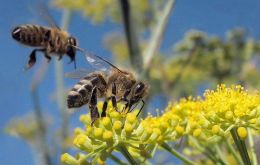
The Chilean fruit industry is being threatened by the rapid decline of the country’s bee population, a product by the country’s ongoing drought.
Water shortages across central Chile are withering the flower buds, depriving bees of their sustenance, the nectar.
